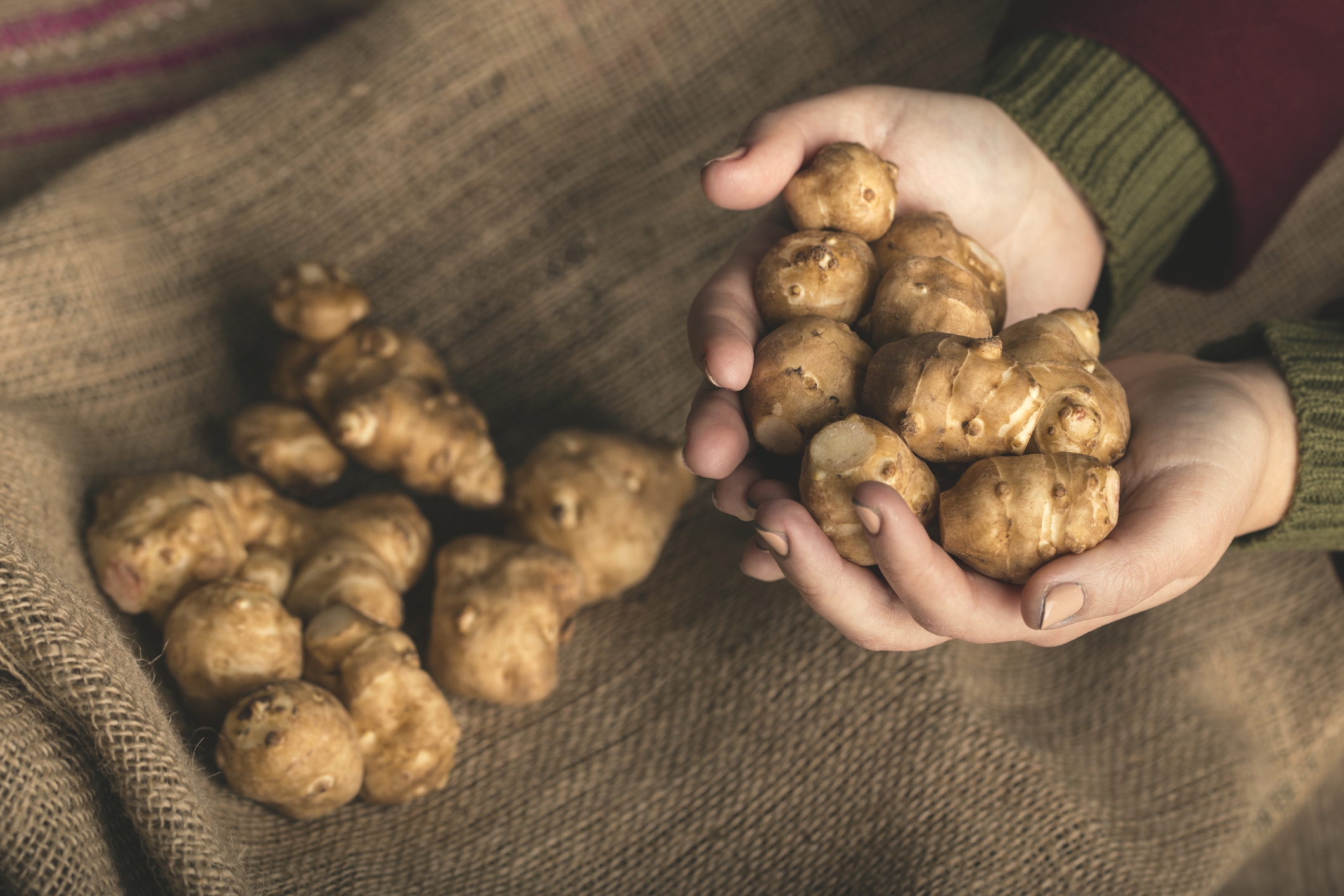Jerusalem Artichoke
Jerusalem artichokes are tuberous roots of a species of sunflower native to North America. Despite their name, they have no connection to Jerusalem and aren't related to artichokes. Also known as "sunchokes" or "earth apples", these knobbly tubers have been appreciated for their crunchy texture and sweet, nutty flavour. In areas like Alberta and wider Canada, Jerusalem artichokes are valued both as an alternative crop and a gourmet ingredient in local cuisines.

More on Jerusalem Artichoke
About
Above ground, the Jerusalem artichoke plant resembles its sunflower relatives, growing tall with yellow flowers. Underground, however, the plant produces irregularly shaped, knobbly tubers that range in colour from pale beige to reddish-brown. These tubers are the edible parts and have a crisp texture, akin to water chestnuts. One of the unique features of Jerusalem artichokes is their carbohydrate composition: rather than storing energy as starch, they utilize inulin, a type of fibre that's beneficial for gut health but can cause digestive discomfort for some people. Nutritionally, they're also a good source of iron, potassium, and thiamine.
History
Native to North America, Jerusalem artichokes were cultivated by Indigenous peoples long before European settlers arrived. The tubers were introduced to Europe in the early 17th century, where they quickly became popular due to their versatility and taste. The name "Jerusalem" is believed to be a corruption of the Italian word "girasole," meaning sunflower, referring to the plant's above-ground appearance. Over time, as potatoes and other New World crops gained popularity, Jerusalem artichokes became less common but never disappeared entirely. Today, they are re-emerging in popularity as chefs and home cooks alike rediscover their unique flavour and culinary potential.
Ways To Cook
Jerusalem artichokes are versatile and can be prepared in numerous ways. After a thorough wash (their knobbly surface can harbour dirt), they can be eaten raw, and thinly sliced in salads, where they impart a crisp texture and a refreshing, slightly sweet flavour. When cooked, their natural sugars caramelize, enhancing their sweetness. They can be boiled and mashed, roasted whole or diced, or sautéed with other vegetables. Jerusalem artichokes also make a creamy, flavorful base for soups when blended with stock and seasonings. For those looking to enjoy them as a snack, thin slices can be deep-fried or baked to create crunchy chips. It's worth noting that, due to their inulin content, it might be wise to introduce Jerusalem artichokes into one's diet gradually to assess individual tolerance. In any culinary setting, they stand out as a delightful combination of the familiar and the novel.
